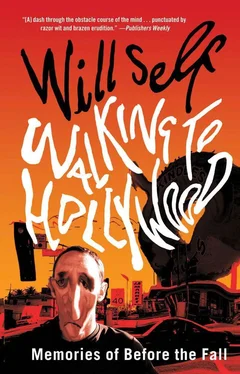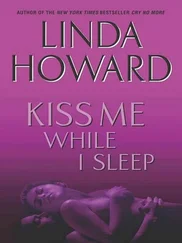Will Self - Walking to Hollywood
Здесь есть возможность читать онлайн «Will Self - Walking to Hollywood» весь текст электронной книги совершенно бесплатно (целиком полную версию без сокращений). В некоторых случаях можно слушать аудио, скачать через торрент в формате fb2 и присутствует краткое содержание. Год выпуска: 2011, Издательство: Grove/Atlantic, Inc., Жанр: Современная проза, на английском языке. Описание произведения, (предисловие) а так же отзывы посетителей доступны на портале библиотеки ЛибКат.
- Название:Walking to Hollywood
- Автор:
- Издательство:Grove/Atlantic, Inc.
- Жанр:
- Год:2011
- ISBN:нет данных
- Рейтинг книги:4 / 5. Голосов: 1
-
Избранное:Добавить в избранное
- Отзывы:
-
Ваша оценка:
- 80
- 1
- 2
- 3
- 4
- 5
Walking to Hollywood: краткое содержание, описание и аннотация
Предлагаем к чтению аннотацию, описание, краткое содержание или предисловие (зависит от того, что написал сам автор книги «Walking to Hollywood»). Если вы не нашли необходимую информацию о книге — напишите в комментариях, мы постараемся отыскать её.
Walking to Hollywood — читать онлайн бесплатно полную книгу (весь текст) целиком
Ниже представлен текст книги, разбитый по страницам. Система сохранения места последней прочитанной страницы, позволяет с удобством читать онлайн бесплатно книгу «Walking to Hollywood», без необходимости каждый раз заново искать на чём Вы остановились. Поставьте закладку, и сможете в любой момент перейти на страницу, на которой закончили чтение.
Интервал:
Закладка:
At Hitchin a Montessori school and a pole-dancing club shared the same single-storey premises. I wondered idly which institution the sign on the flat roof — ‘Wonderland’ — referred to. Ash trees did a dusty hula-hula along the field margins, gloss-black cattle stood in the deep shadow beneath the massy crowns of oaks. I went to the buffet car in my socks. The steward placed a lidded styrofoam cup in a small paper carrier bag, together with a tea bag in a sachet, a tube of UHT milk and another sachet — this one of sugar. I explained to him — as I withdrew the cup, ripped open the sachet and dunked the tea bag — that tea was an infusion, which meant that it was vital for the water to be actually boiling when it came into contact with the leaves. He looked at me furiously — his appeal to health and safety was the hiss of a cornered snake. My probing head felt small, hard, shiny and wedged into the top corner of the carriage like a security camera. I knew — without being able to recall a single instance — that I had behaved like this many times before: taking Canute’s stance in the path of the great surge of ill-brewed tepid tea that was inundating England. The steward’s glare cut me into diamond shapes that sparkled in the sunlight, then condensed into droplets whipped away from the carriage window — a vaporous trail.
I grabbed a complimentary copy of The Times from the counter and beat a retreat to my seat.
The fight went out of the train and it sidled to a halt beside an irrigation system that was jetting liquid assets over a field full of subsidies. I rattled the paper open on this headline: ‘Scepticism Mounts over Installation of Holderness Wind Turbines’. There was an aerial photograph showing the thirty-mile outer curve being described by the giant turbines as they were implanted in the seabed between Flamborough Head and Spurn Head.
How could I have forgotten this? The largest public works project in living memory, one that had been compared in its scale and dynamism to the Tennessee Valley Authority or, more tendentiously, the Mittelbau- Dora labour camps that served the V-2 rocket factories. The government’s commitment to generate 10 per cent of the nation’s electricity using renewable technologies had been the centrepiece of its regeneration programme and seldom out of the news. The long-term unemployed of Tyneside and South Shields had been dragooned back into work, and by some accounts were being treated by the contractors — a German company — with a toughness bordering on brutality. Others said that this was nonsense, that the 30,000-strong workforce was being either newly inducted or retrained in an exemplary fashion and to the highest standards. Once the turbines had been built and installed, these men and women would form the core of a fully revitalized heavy-industry sector in the Northeast: a new generation of welders, fabricators and turners who would rival — then exceed — the output of those who had built the great warships and artillery pieces of the Imperial era.
When they came on-line, each one of the massive, three-bladed turbines would generate five megawatts of clean power — and there were to be a hundred of them strung along the Holderness coast alone. Naturally there was opposition; an uneasy alliance had sprung up between the power station workers — who saw their jobs blowing away in the wind — and the more extreme environmentalists, who, while they may have campaigned aggressively for renewable energy, never envisaged it being generated on quite this scale, nor predicated upon a gargantuan reindustrialization. And then there were the inhabitants — the operators of shrinking caravan parks and the farmers of diminishing acreages, aghast that so much tax payers’ money should be poured into the German Ocean, while their own sea defences — with the exception of those at Hornsea and Withernsea — had been abandoned on the grounds that they weren’t cost-effective. In the pubs and golf club bars from Bridlington to Easington it was reported that dark mutterings could be heard, of sabotage — and worse.
I looked up from the article to discover that the train had slow-danced into the flatlands of the Humber estuary. The green corduroy of the fields smoothed away on either side; to the east there squatted the fat-bellied cooling towers of the Drax power station at Selby, belching smoke; while to the west an obese grey-white cloud waddled up into the blue sky, its source the Ferrybridge power station at Knottingley. Was it possible, I mused, to judge by eye alone which of these genies was bigger, or to distinguish limbs from heads? Or was this anthropomorphizing itself evidence of my part in a futile collective denial? For they were nothing, really, these clouds — only a portion of the thirty million tons of carbon the pair vomited out every year.
Not just the Drax and the Ferrybridge — hereabouts the coal-fired power stations were as windmills in a Dutch landscape; there was the Eggborough at Goole and the Salt End in Hull itself. All those trillions of carbon particles roiling up, then caught by the wind shear and so driven offshore into the turbine blades; dirty power twined by clean into a vaporous trail that wavered over the waves. In the synoptic eye of my fervid mind the turbines became the propellers of a monstrous airship — or landship, for the craft was the seabed and the Holderness coast; straining, the turbines wrenched the crumbling cliffs, the caravans’ hard standings, even entire flintknapped churches away from the East Riding, away from the desert island of Britain.
Under the elegant glass and cast-iron roof of York Station I bought a medium latte with a triple shot of espresso. The caffeine was a bad idea — my bowels liquefied, but the platforms were thronged and there was no time to queue for the toilets, so I pressed in among day trippers who were crowding against the doors of the small, five-coach Scarborough train. Then I struggled past bare arms as pendulous as fat bellies to achieve a single seat. I opened The Times again, and as the train chuckled away from York read that the film adaptation of Bret Easton Ellis’s American Psycho would be screened on a cable channel that evening. ‘It’s a fascinating insight into an inhuman mind,’ the previewer wittered, ‘with a late twist revealing the sheer insanity at the core of Bateman’s character.’
Bateman? Ellis? The names had a certain familiarity, as did the vignette-sized photograph of a chubby-cheeked man not unlike the young Orson Welles — yet I couldn’t pin down the facts: did I know either of them, or had I only seen the movie?
On family car journeys we played the memory game. Each member, in turn, recited the formula ‘On my holiday I took with me… ‘, then added their own item, whether bucket, spade or pink sun dress. The next player had to remember all the previous things and then add another. Could this be a useful strategy for me, one to add to the mnemonics, the lists of routine activities, and the technique — which I had easily mastered — of not asking myself any questions, or contradicting myself, only supplying a steady flow of reassuring answers?
The passengers sat surrounding me, jammed into the smoothly adzed wooden vessel; their torsos were rigid, their arm-length detachable penises lay by their feet. Their quartzite eyes flickered as cuttings, embankments, trees and barns hurried past the little train, which was mounting now, up into the Yorkshire Wolds. Had they all faked their own deaths, I wondered. If so, where were those things they had taken on their holiday, the floating buckets, the sinking spades, the billowing sun dresses — if not scattered on the cold green waves?
Besides, if I listed everything — a 1.5 litre bottle of Coke, a tracksuit top with trompe l’œil chainmail sleeves, a child’s rubber figurine wearing a Churchillian siren suit but with the head of a pig — wasn’t there my paramnesia to contend with? Might I incorporate things that didn’t belong to me — and had never even been in my visual field? And so I dredged up an unimpeachable memory: the British Ghanaian writer who had accosted me at a West London summer party, where the guests sheltered from the rain in a palatial playhouse, and, his jaw prognathous with cocaine gurning, clutched my arm as he explained his failure to publish was a result of ‘My fatal flaw, see, it’s girls in boots with guns. Before the internet it wasn’t a problem — I mean, I could control it — access was difficult; but now… Man! There’s too much — a superabundance!’
Читать дальшеИнтервал:
Закладка:
Похожие книги на «Walking to Hollywood»
Представляем Вашему вниманию похожие книги на «Walking to Hollywood» списком для выбора. Мы отобрали схожую по названию и смыслу литературу в надежде предоставить читателям больше вариантов отыскать новые, интересные, ещё непрочитанные произведения.
Обсуждение, отзывы о книге «Walking to Hollywood» и просто собственные мнения читателей. Оставьте ваши комментарии, напишите, что Вы думаете о произведении, его смысле или главных героях. Укажите что конкретно понравилось, а что нет, и почему Вы так считаете.












